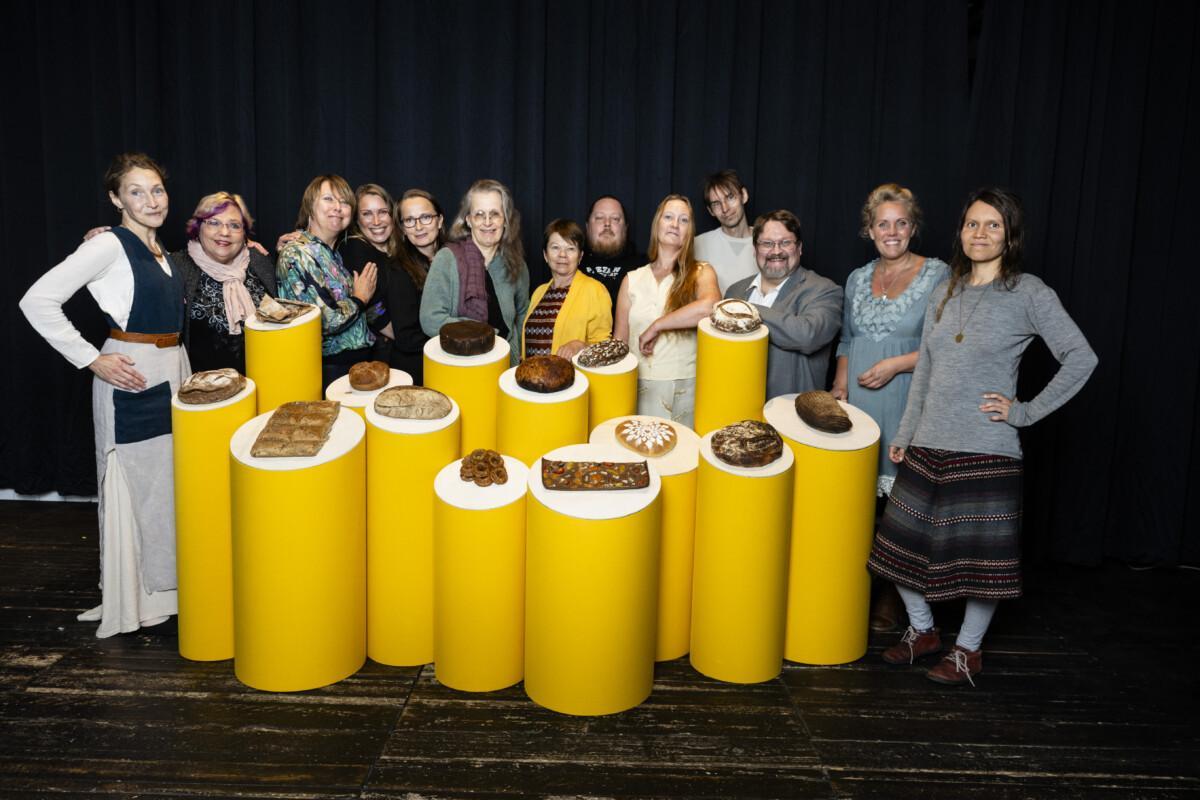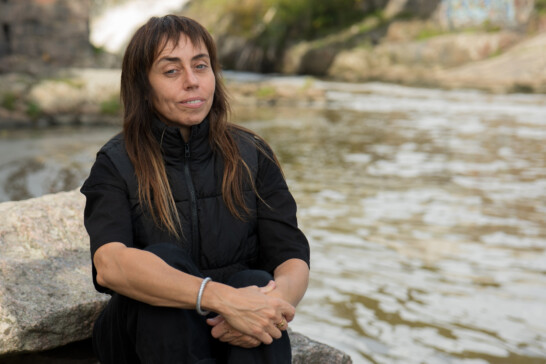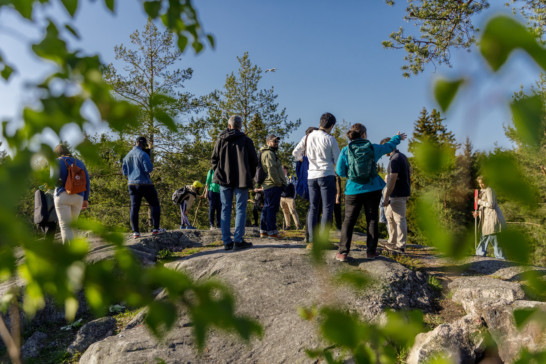News
Collective wisdom in the Maaleipä Challenge

Participants’ experiences
During the spring and summer, London-based Cooking Sections’ IHME Helsinki Commission 2024 Maaleipä Challenge invited everyone to bake bread from ingredients that combine the well-being of the soil, the sea, and the human gut. The Challenge culminated in the Maaleipä Feast at Teurastamo Kellohalli in Helsinki on 21 September 2024, in which 14 different types of bread were on display and tastable by the public.
Developing audience engagement in IHME Helsinki Commissions and understanding the importance of annual commissioned works for those who experience them is a priority in the Foundation’s work. After the Feast, we held feedback sessions with the finalist bakers to get a deeper understanding of participation in the Maaleipä Challenge. Half of the finalists took part in the discussions.
A surprising and “fragile” process
For participants, taking part had been an interesting, wonderful and surprising process, but also a “fragile” one. They had been encouraged by partners and friends to send in their own Maaleipä (bread for the soil) recipe, and were driven by the desire to make a concrete impact on climate change, to contribute to cultural and food-system change, and to share knowledge about different raw materials that are good for people and the environment.
The process could involve uncertainties about what was possible and whether they could participate without having an artistic background. In the end, the desire to improve on a familiar bread in line with the Challenge’s criteria meant they learned a lot, while sparking curiosity and a desire to experiment, and opened up new perspectives, both on cultivating their own vegetable plot and on food production more broadly.
Developing the recipe and diving into the Challenge was described as an artistic process. As one participant commented:
Participation confirmed that art needs time, it needs frustration and boredom and experimentation and exploration, and it was a big process for me.
More than competition and prizes, it was important to participants to create something new, to share knowledge, to meet and talk with other bakers and food producers, the feeling that with their own small actions they could contribute to cultural change through joy and sharing. For many of them the Maaleipä Feast and getting to take part in it was a victory in itself. The competition and prize-giving were seen as secondary.
Was it worth ranking the breads by how well they met the aims of the Challenge?
It was a very fragile thing that the event ended with the breads being judged and some of them being credited as award-winning solutions, even though everyone had a lot to contribute.
Instead of giving awards for the six breads and bakers, the process, the celebration, and showing the diversity of breads would have been enough for the participants.
They felt that the Challenge and the event brought together collective wisdom, created a space for discussion of systemic change in food production and food security, and succeeded in building a bridge between food producers and citizens. They wanted more of this. Ultimately, the accessibility of the Challenge and making it possible for anyone to make Maaleipä breads was a big issue in the discussions.
From Maaleipä to transformation of the food system?
Organic flour from small-scale producers is not readily available and prices are higher than for ordinary flour in the shops. Ingredients gathered from nature are only available in specific seasons and the use of sourdough starter is not a given.
So how do you get Maaleipä and the thinking behind the bread challenge to spread beyond insiders to the general public? Can the Challenge have an impact on the food system and people’s everyday choices? How can we get them interested in Maaleipä bread, even if they don’t bake it themselves?
These questions highlighted the problems with the current food system. Buying organic is only possible for those who can afford it. Organic food could be more accessible to everyone if the system made it possible. The discussions highlighted the need for a systemic change in the production of food in Finland. Grassroots action and consumer demand could change the system, but no single actor can change structures very quickly.
Maaleipä ambassadors promoting the change
Nevertheless, at the grassroots level each of the Challenge finalists is taking action by continuing to bake Maaleipä bread, serving it to others, and spreading the word. The participants in the discussion felt that they were acting as ambassadors for the Maaleipä Challenge. The word Maaleipä – Finnish for ‘bread for the soil’ – has already taken root in their lives, new recipes are being developed, and there are plans to hold bread tastings among their family, friends and workmates.
A dedicated Facebook group has been set up for Maaleipä bread bakers, which anyone interested in Maaleipä and bread baking can join. The participants themselves are trying to create their recipes so that anyone can try them out and develop them further.
Through the Challenge, a cultural change is happening within the bakers and, with them, is spreading to the wider community. At IHME we are currently finalising an educational package on the Maaleipä Challenge for schools. We are also working on getting the word ‘maaleipä’ into the Finnish dictionary, to describe breads made from ingredients that combine the well-being of the soil, the sea, other species, and people. We could celebrate official Maaleipä Day every year on 21 September.
Translated with DeepL.com (free version), revised by MG.

